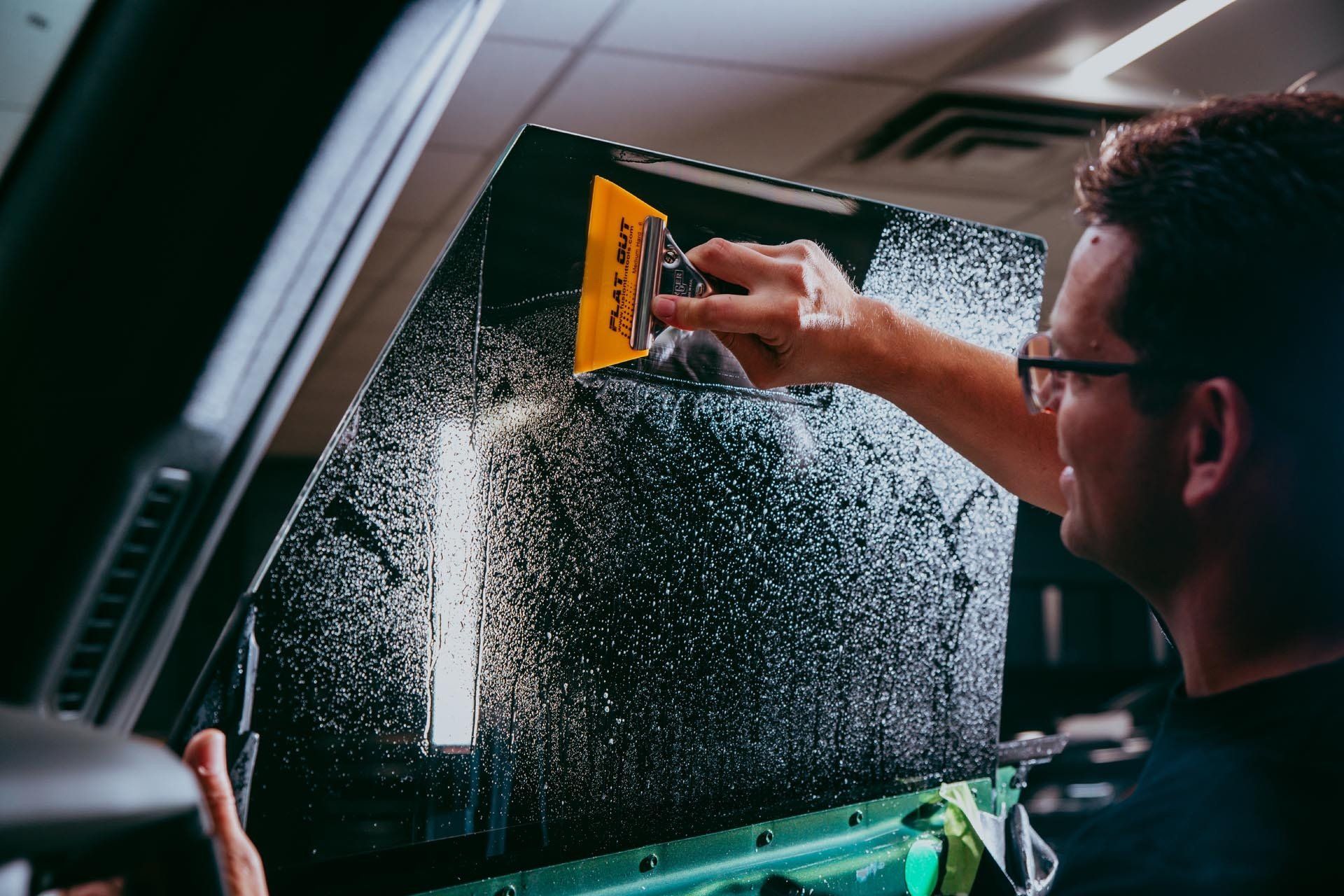Phone:
Address:
1818 99th St E Tacoma, WA, 98445 United States
Hours of Operation:
Mon-Fri: 8:00 AM -5:00 PM
Sat: 9:00 AM – 5:00 PM
Sun: Closed
When you think about car maintenance, window tinting might not be the first thing that comes to mind. However, investing in quality window tint can significantly protect your car’s interior and ensure it lasts longer. Not only does tinted glass keep the sun's harsh rays at bay, but it also helps maintain a comfortable temperature inside your vehicle's cabin by reducing the amount of heat that enters. Let’s explore how window tinting does all this—and why it deserves a spot on your car care checklist.
Window tinting protects your car's interior by blocking up to 99% of harmful UV rays, significantly reducing the risk of fading upholstery and cracked leather over time. Additionally, tinted windows can reduce solar heat absorption, keeping the vehicle cooler and further preserving the integrity of interior materials against harsh sunlight.

UV Protection and Interior Preservation
One of the most compelling reasons to invest in window tinting lies in its remarkable ability to shield your vehicle’s interior from harmful ultraviolet (UV) rays. These rays penetrate through windows and contribute to a slow but steady deterioration of your car's upholstery and components over time. Imagine settling into your car after it's been basking in the sun—what was once a vibrant fabric is now dull and faded. This isn't just a cosmetic issue; it can significantly shorten the lifespan of your interior materials if left unchecked. Furthermore, the fade in color due to UV exposure impacts the aesthetic elements that add to the appeal of your vehicle's interior.
Investing in high-quality window tint can block up to an impressive 99% of both UVA and UVB rays. Think about that for a moment: By simply applying a protective film, you’re creating a barrier that keeps those damaging rays at bay. For owners of leather seats, this is vital. Leather has a tendency to dry out and crack with excessive sun exposure, leading not only to aesthetic issues but also to discomfort during hot summer days. Preserving the integrity of these high-end materials also helps maintain the resale value of your vehicle.
But the benefits don’t stop there. The significance of UV protection extends into health as well; prolonged exposure to UV radiation is linked not only to fading materials but also to skin damage among drivers and passengers alike.
While safeguarding against UV rays is crucial for maintaining your vehicle's interior integrity—and, by extension, its resale value—it’s equally important to consider how these protective measures play a role in regulating your vehicle’s temperature during those sizzling local summers.
Heat Reduction Benefits
Window tinting is more than just a fashionable upgrade for your vehicle; it serves as a shield against the sweltering heat that often accompanies those sunny days. Imagine getting into your car after a long day out in the sun, and instead of encountering an oven-like environment, you're embraced by a pleasantly temperate interior.
This temperature control isn't merely a luxury—it's an essential factor in maintaining both your comfort and the health of your vehicle.
The benefits of heat reduction extend beyond personal comfort. When temperatures inside the car soar, materials such as leather and upholstery become fragile and are prone to cracking over time. Regular exposure to extreme heat causes these components to deteriorate much faster than usual, leading to costly repairs or replacements. By investing in quality window tinting, you actively preserve the integrity of your car’s interior for years. This preservation of your car’s materials not only enhances its look but also sustains its resale value by maintaining the original level of material quality and appearance.
Additionally, reducing reliance on air conditioning can lead to better fuel efficiency. When sunlight and heat are barred from entering via tinted windows, your vehicle stays cooler naturally; this prevents unnecessary heat buildup and thus allows you to use less energy on cooling systems. A study conducted by the International Window Film Association found that cars equipped with window tinting could reduce the workload on their air conditioning units by approximately 10%. This not only saves money at the pump but also minimizes environmental impact over time. The effects of this efficient cooling extend to the comfort of the occupants, ensuring a more pleasant journey.
To maximize these benefits, selecting the appropriate type of tint is critical, as it can influence the results of your investment.
For optimal thermal regulation, seek out ceramic window tints. They provide superior heat rejection while maintaining clarity and visibility—a feature that traditional films may lack. By choosing wisely, you ensure that you're not only enhancing the aesthetic appeal of your car but also creating a comfortable and sustainable driving environment. Investing in professional installation also guarantees compliance with local regulations and optimizes performance—two important factors that set apart good window film from great ones.
As we consider how these choices can elevate both functionality and style, let’s explore other advantages that contribute to a more enjoyable driving experience.
Privacy ranks high on the list of reasons many car owners choose to invest in window tinting. Tinted windows act as a barrier between the inside of your vehicle and the outside world, significantly reducing visibility from prying eyes.
OUR LOCATION
1818 99th St E Tacoma, WA, 98445
United States
HOURS OF OPERATION
Mon-Fri: 8:00 AM -6:00 PM
Sat: 9:00 AM – 5:00 PM
Sun: Closed
This website was designed by the team at Detailers Roadmap, a platform developed for detailing operators across the globe.
All Rights Reserved | 8bitcreative, LLC | Superior Auto Shine

